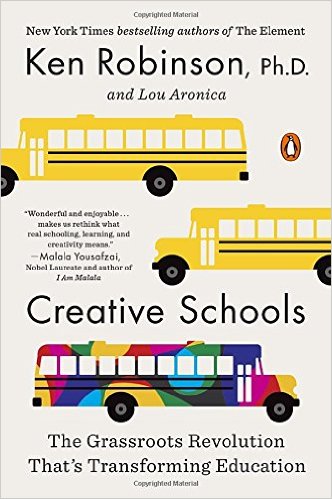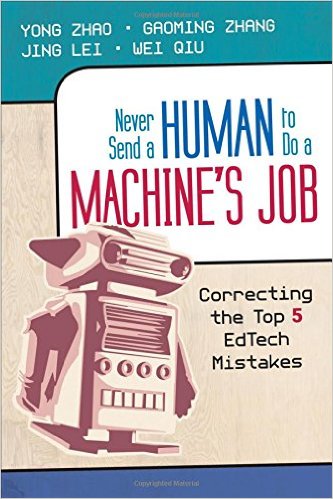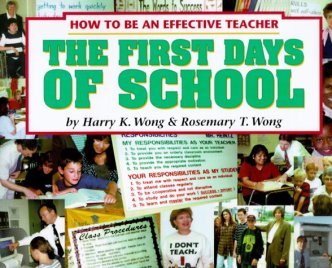There is something special about book clubs that you don’t get from other forms of teacher PD. I love the feeling of finally being able to share what I’ve read with a group of likeminded individuals, all of whom have a different perspective on the same source material. In book clubs, everyone comes in as an expert (presuming that you’ve read the book), and even when chapters are rushed through or skipped altogether, the main ideas can easily be jigsawed together by a nice bit of conversation with coffee on hand.
The following are 5 books for professional book clubs that I’ve had the pleasure of either facilitating or attending in recent years. I hope you find them useful in starting up a book club in your school or organization.
1. Clever Lands by Lucy Crehan

This is the most current Book Club selection that we’ve been reading at my school, and it is an easy and important read for our time. As PISA scores continue to influence policy around the world, it’s important to take into account what makes these so-called successful school systems so great, and what makes their contexts unique and inimitable.
The best part of using this book for a book club is that you can frame each meeting as a “journey to a foreign land”, as the book is split evenly between 5 of the top PISA ranking countries: Finland, Japan, Singapore, China (Shanghai), and Canada.
Related:
2. Creative Schools by Sir Ken Robinson

Creative Schools explores the entire breadth of the philosophy behind Ken Robinson’s famous TedTalks, such as “Do Schools Kill Creativity?”. While his writing isn’t as humorously tangential as his videos, the ideas presented in Creative Schools are equally intriguing. While those box checkers among us may come away feeling desperate for concrete solutions to the industrial model of education, us creative folk cannot help but leave inspired.
Related:
- 5 Ways to Give Your Class Back to Your Students
- Can a Class Teddy Bear Raise Achievement?
- 5 Ways Camp Makes You a Better Teacher
3. Never Send a Human to Do a Machine’s Job by Yong Zhao and Co.

This book literally kick-started my journey towards a truly blended model of teaching and learning. As the title suggests, Zhao goes into what machines are good for, and what they are limited to (at the moment), but he also helps us to learn from the mistakes of early adopters of educational technology, and to be more intentional in our instructional design when using technology in the classroom.
Related:
- Teachers Need Tech Sandbox Time
- “Poor internet connection” not good enough reason to abandon tech
- Teacher Tool Kit For Seesaw – A student-driven digital portfolio
4. The First Days of School By Harry K. Wong and Rosemary T. Wong

While not as up-to-date as the previous three books, I never go a year without flipping through a few pages of The First Days of School. Even as my practice has adapted in response to changes in my own life and environment, including the diverse populations that I’m serving, I find solace in the Wongs’ simple charts and graphics that help beginning teachers create an environment that responds to every child’s needs. The idea that every day, especially the day after a bad day, can be reworked into a first day of school, is reason enough for me to keep a copy of it on my shelf.
Related:
- 5 Things Not to Prepare for the 1st Day of School
- Easiest Elementary School Hack for Increasing Motivation
- Teacher Draws 180 Unique Whiteboard Illustrations: One for Every Day of the School Year
5. Trivium by Martin Robinson

It wouldn’t be a book club if someone came without reading the book, and Trivium was my moment to carry the torch. I guess this book was about where the three divisions of classical education (grammar, rhetoric, logic) meet, and how this conceptual framework can be used to help students today. Basically, I’m just repeating what it says on the cover of the book.
Did I come even though I didn’t read it? Yes. Did I talk about things that I didn’t know much about? Yes. Did I write on some chart paper? Oh yes. At the end of the day, I had a good time and met and talked about my favorite subject in the world while sipping on iced coffees. Totally worth it.
Keep coming back to educationrickshaw.com, follow us on Twitter and check out our TPT.



We have a little book club in our own, small secondary language club for Swedish. It is a great supplement to keeping up the language skills, to motivate, and to challenge our kids to learn new words that they somehow just magically remember and start using in their everyday vocabulary.
Love book clubs!
LikeLike
Really interesting !
thanks for sharing 🙂
Sonia
http://www.soniaaicha.com
LikeLike
Thanks for visiting!
LikeLiked by 1 person
the pleasure is all mine
LikeLike
I have noticed you don’t monetize educationrickshaw.com,
don’t waste your traffic, you can earn extra bucks
every month with new monetization method. This is the best adsense
alternative for any type of website (they approve all sites), for more details simply search in gooogle: murgrabia’s tools
LikeLike